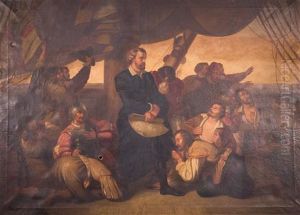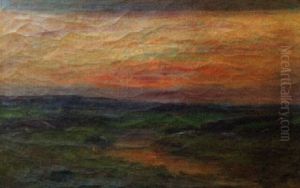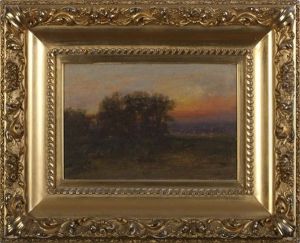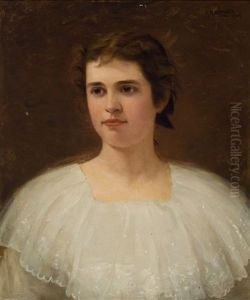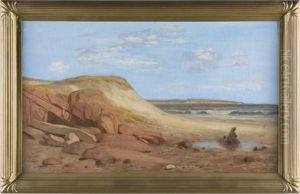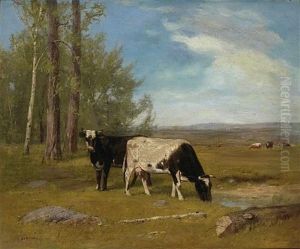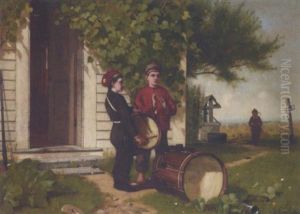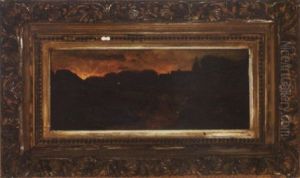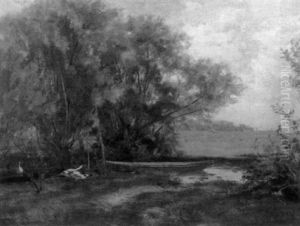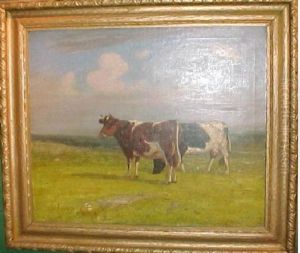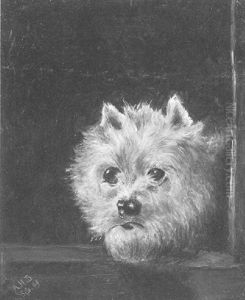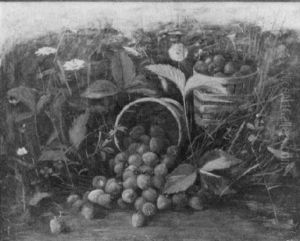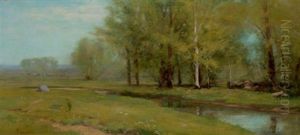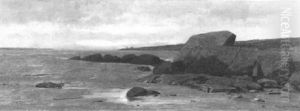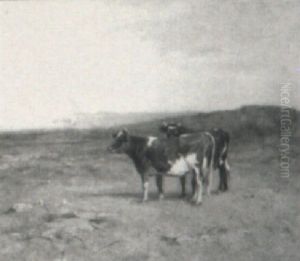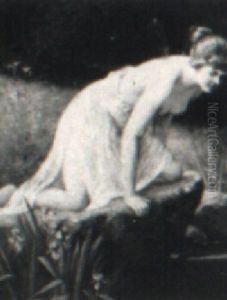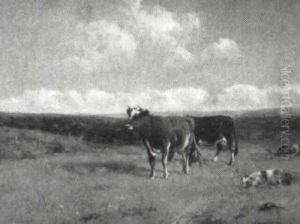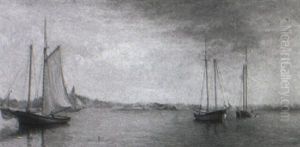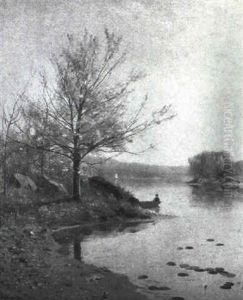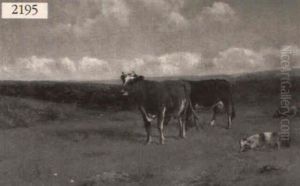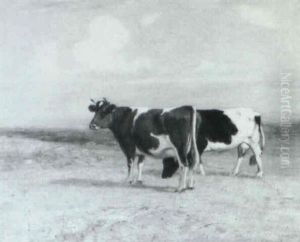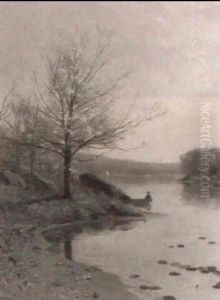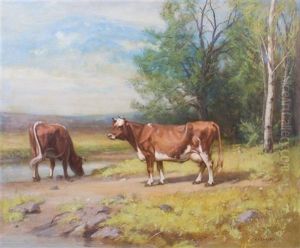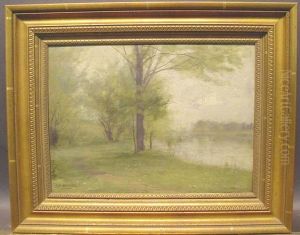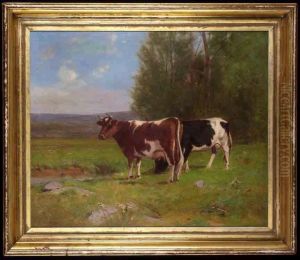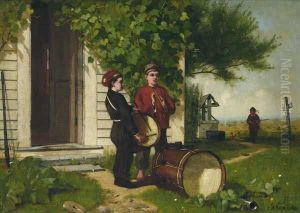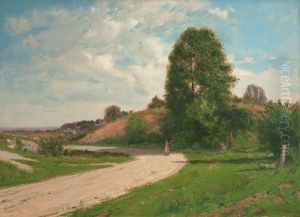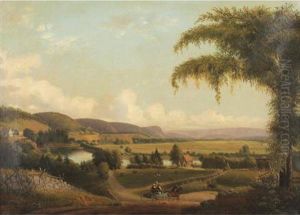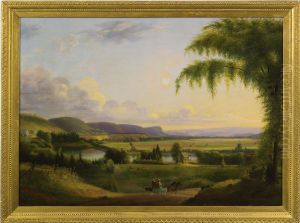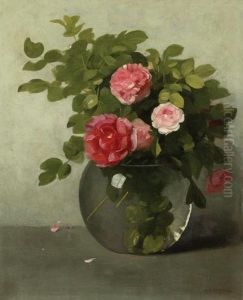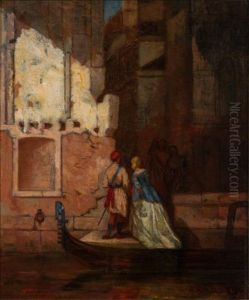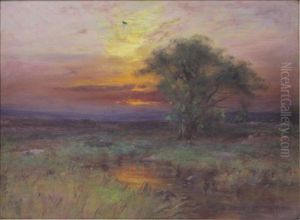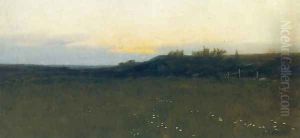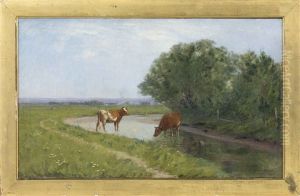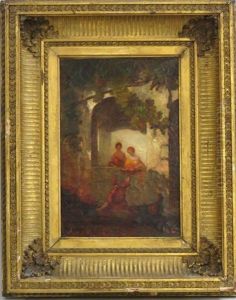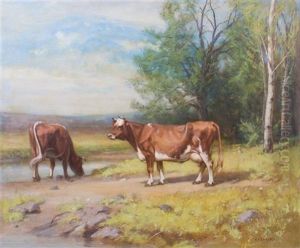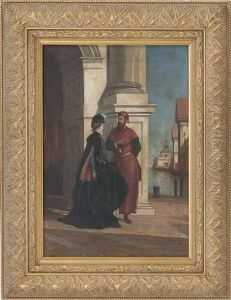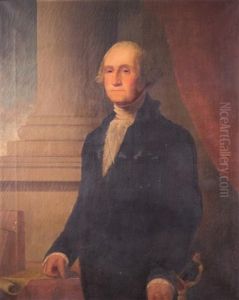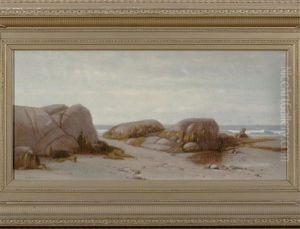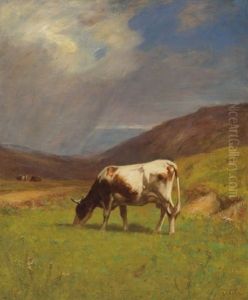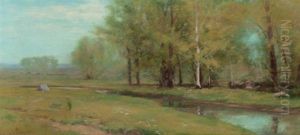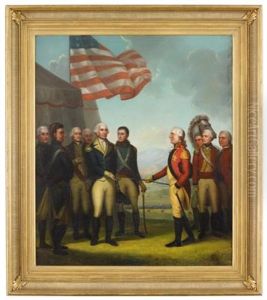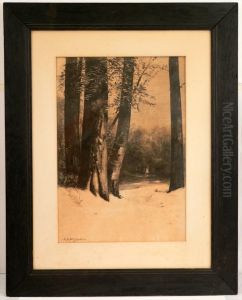Albion Harris Bicknell Paintings
Albion Harris Bicknell was an American painter and engraver born in Turner, Maine, on March 18, 1837. He grew up in a time when America was undergoing significant changes, both socially and industrially. Bicknell began his artistic career relatively late; he first pursued a business career and turned to art only after the Civil War had ended.
Educated initially at the public schools of his native state, Maine, Bicknell moved to Boston after the war to study art. He became a pupil of the famed painter Albert Van Beest, who was known for his marine paintings. Under Van Beest's guidance, Bicknell honed his skills and developed a particular interest in portraiture and landscape painting.
Bicknell's style was rooted in the 19th-century American artistic movement, which often focused on realistic portrayals of everyday life, historical themes, and the natural world. He was particularly adept at capturing the essence of his sitters in portraits, and he became known for his attention to detail and his ability to convey the personality and inner life of his subjects.
Throughout his career, Bicknell exhibited his works at various prominent institutions, including the National Academy of Design, the Boston Art Club, and the Paris Salon, which was a significant accomplishment for an American artist of that time. His engravings and paintings were well-received, and he gained a respectable following.
Later in life, Bicknell continued to paint and also became involved in teaching art. He was a respected member of the Boston art community and contributed to the cultural life of the city during the late 19th and early 20th centuries. Albion Harris Bicknell passed away on February 6, 1915, leaving behind a legacy as a skilled painter and engraver who captured the spirit of post-Civil War America with a particular focus on the New England region.
